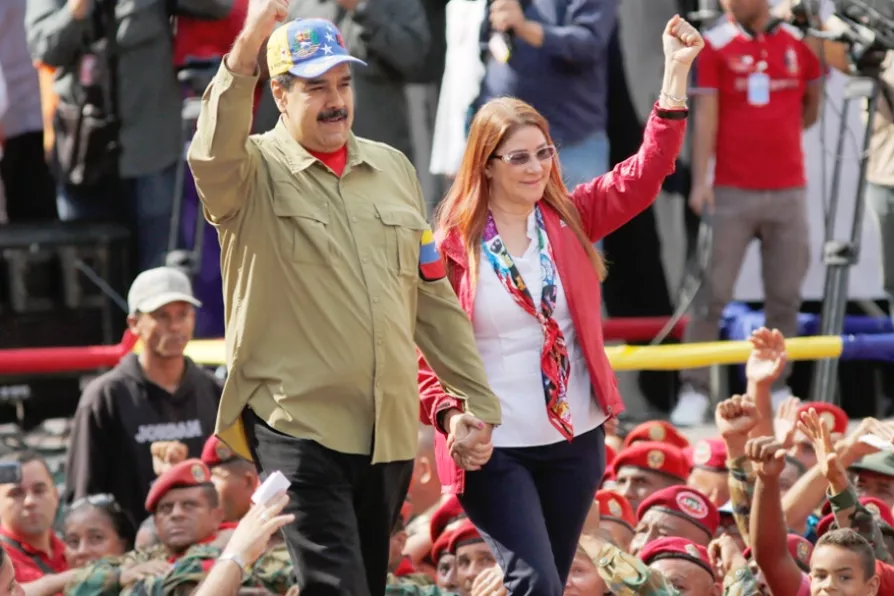
 Venezuela’s President Nicolas Maduro and first lady Cilia Flores address supporters during a rally in Caracas, Venezuela, two weeks ago
Venezuela’s President Nicolas Maduro and first lady Cilia Flores address supporters during a rally in Caracas, Venezuela, two weeks ago
US Secretary of State Rex Tillerson recently suggested that Venezuelan President Nicolas Maduro might be removed by a military coup — the latest US move to effect “regime change” and topple the democratically elected government.
The leaders of Venezuela’s armed forces have rejected Tillerson’s comments as “interventionist” and reaffirmed their support for Maduro’s government.
Tillerson’s remarks were made before he embarked on a regional tour to garner further support for the US’s strategy. In addition he is threatening to ban the import of oil and crude products into the US from Venezuela.

The US attack on Venezuela raises grave threats to Cuba and the region, writes NATASHA HICKMAN of Cuba Solidarity Campaign

International solidarity can ensure that Trump and his machine cannot prevail without a level of political and economic cost that he will not want to pay, argues CLAUDIA WEBBE

The US is desperate to stop Honduras’s process of social and democratic change, writes TIM YOUNG











